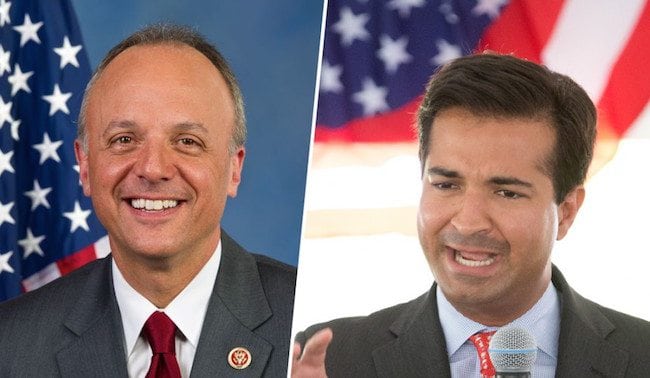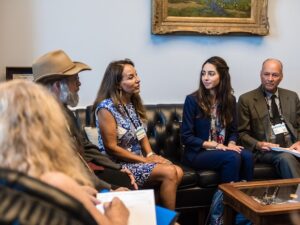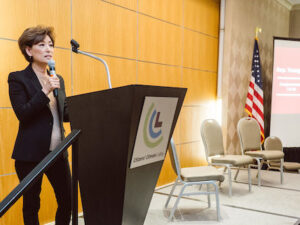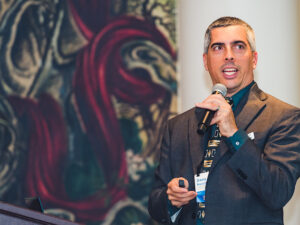
Rep. Ted Deutch (D-FL) and Rep. Carlos Curbelo (R-FL) are co-chairs of the bipartisan House Climate Solutions Caucus.
By Kelsey Bullis
Since the 115th Congress began, members of the House Climate Solutions Caucus and their staffs have been working diligently to generate bipartisan initiatives and legislative pursuits to fight climate change. The caucus was created with the intention of facilitating significant action, and to push out pieces of legislation in line with the group’s goals. Just a few months into the new Congress, these plans rendered by caucus members and their staff are coming to fruition. Namely, the caucus already has its stamp on two bills introduced in the House of Representatives.
The first bill that members of the Climate Solutions Caucus introduced to the House was the Climate Solutions Commission Act of 2017. Introduced by Rep. John Faso (R-NY-19) and Rep. John Delaney (D-MD-06), the bill has an evenly split bipartisan group of 12 cosponsors. The act establishes a bipartisan National Climate Solutions Commission, which will be responsible for reviewing economically viable public and private actions to reduce greenhouse gas emissions. Additionally, and perhaps most importantly, this bill also includes a directive that the “goals for emissions reductions should be in line with the latest scientific findings of what is needed to avoid serious human health and environmental consequences of a changing climate.” This is the first bill that is fair to say originated within the caucus.
The second bill the caucus members and staff introduced was H.R. 1090, also known as Technologies for Energy Security Act, recycled from the 114th Congress. It was first introduced by caucus member Rep. Tom Reed (R-N-23) with 40 cosponsors. With the re-introduction in the 115th Congress, there is now an improved bipartisan mix of 67 cosponsors — many of whom are on the caucus. The purpose of this bill is to extend the residential energy efficient property tax credit through 2021. These credits would go towards expenditure for geothermal heat pump property, fuel cell property, and small wind energy property.
On top of these legislative actions, four Republican members of the caucus joined their colleagues in April in a letter addressed to President Trump urging him to maintain the United States’ commitment in the Paris agreement. The four republicans are Reps. Carlos Curbelo, Patrick Meehan, Ryan Costello and Brian Fitzpatrick. This letter was sent in response to the uncertainty coming out of the White House regarding the Paris agreement, which President Trump vowed to leave during his campaign. This bipartisan act exemplifies the leadership emerging among Republicans on climate issues, especially amid caucus Republicans.
Kelsey Bullis is an intern in the Washington office of Citizens’ Climate Lobby.





